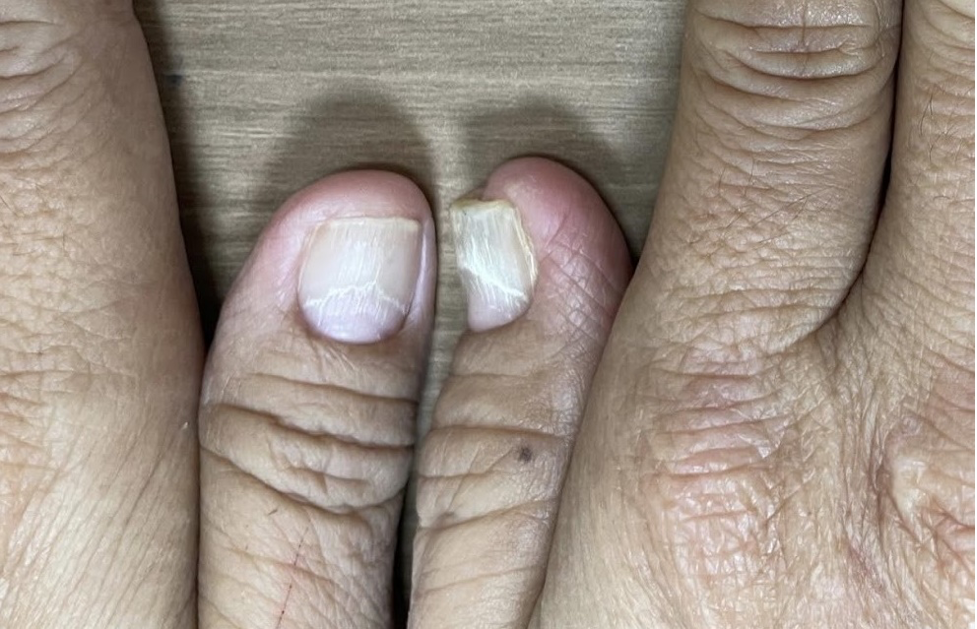Hau, a 55-year-old man, visited Tam Anh General Hospital in TP HCM after losing 8 kg over three months. Tests revealed iron deficiency anemia, hypothyroidism, and low blood albumin (the main protein in blood).
Dr. Le Thanh Quynh Ngan, Head of the Gastroenterology Department and Endoscopy Center, performed an endoscopy and discovered dozens of polyps throughout Hau's colon, ranging from 3 to 15 mm in size. Polyps were also found in his stomach, duodenum, and small intestine, varying in size but all identified as benign hyperplastic polyps.
This was the first case of Cronkhite-Canada syndrome diagnosed at the hospital. "Medical literature worldwide has documented around 500 similar cases to date," Dr. Ngan said.
This syndrome increases the risk of gastrointestinal malignancies and malabsorption, leading to protein and electrolyte deficiencies. About 50% of patients die within the first 5 years after diagnosis due to anemia, malnutrition, protein loss, and malabsorption.
 |
Hau's nails thickened, rough, and bumpy due to Cronkhite-Canada syndrome. Photo: Tam Anh General Hospital |
Depending on the patient's symptoms and condition, doctors prescribe appropriate treatments such as immunosuppressants and antibiotics to eradicate Helicobacter pylori bacteria. Hau's test results were negative for HP and other infections, so he was prescribed anti-inflammatory medication for his stomach, immunosuppressants to alleviate gastrointestinal discomfort, antacids, and probiotics. He was also given iron, folic acid, and amino acid supplements to combat malabsorption, and advised on dietary and lifestyle adjustments.
After 6 months of treatment, a follow-up endoscopy showed no inflammation or polyps in his stomach. Hau experienced a reduction in bloating, indigestion, and hair loss, along with weight gain and improved hemoglobin levels. He continues treatment and undergoes regular screenings for gastrointestinal cancer.
 |
Dr. Quynh Ngan examining Hau. Photo: Tam Anh General Hospital |
Dr. Ngan noted that Cronkhite-Canada syndrome typically affects people between 50 and 60 years of age. The cause remains unknown, but risk factors include environmental pollution, immune system disorders, and Helicobacter pylori (HP) infection. Diagnosis is based on the presence of multiple inflammatory polyps in the gastrointestinal tract and the exclusion of other diseases. Individuals experiencing unusual gastrointestinal symptoms should seek medical attention promptly.
Bao Tram
*The patient's name has been changed
| Readers can submit questions about digestive diseases here for doctors to answer. |












